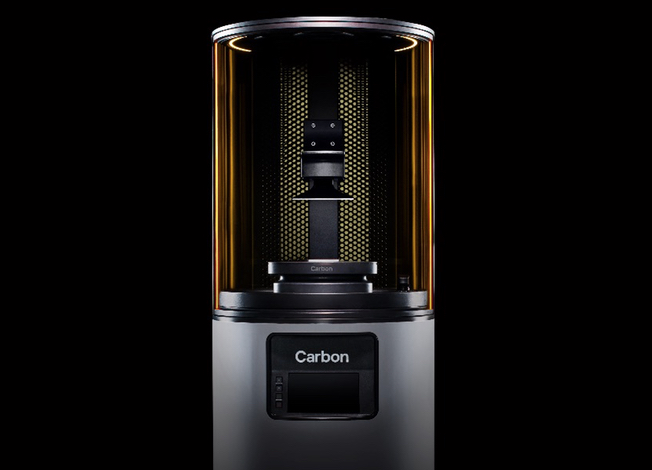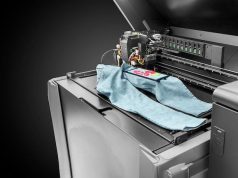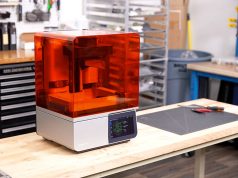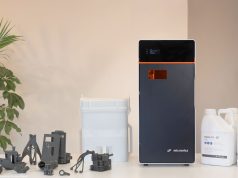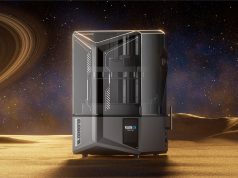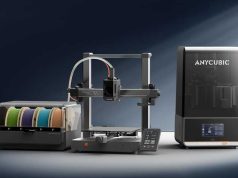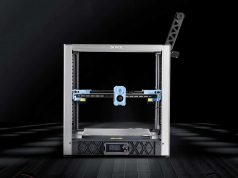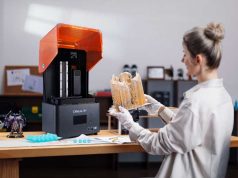The Carbon 3D printer has first been revealed to the public about a year ago, featuring the groundbreaking Continuous Liquid Interface Production (CLIP) technology, that reaches a speed 25 to 100 faster than current 3D printing processes. Today, the California-based startup, who has teamed up with several companies that have tested the CLIP technology beforehand, unveils their first commercial 3D printer called the “M1“.
The M1 delivers both functional prototypes an production-quality parts featuring resolution, surface finish and mechanical properties required, with a maximum size of 144 x 81 x 330 mm. Being connected to the Internet, the printer collects over one million process control data points per day, in order for Carbon to provide remote diagnostics, assist with print optimisation and improve print quality over time. A browser-based interface enables operators to work inside a network with no software installation required.
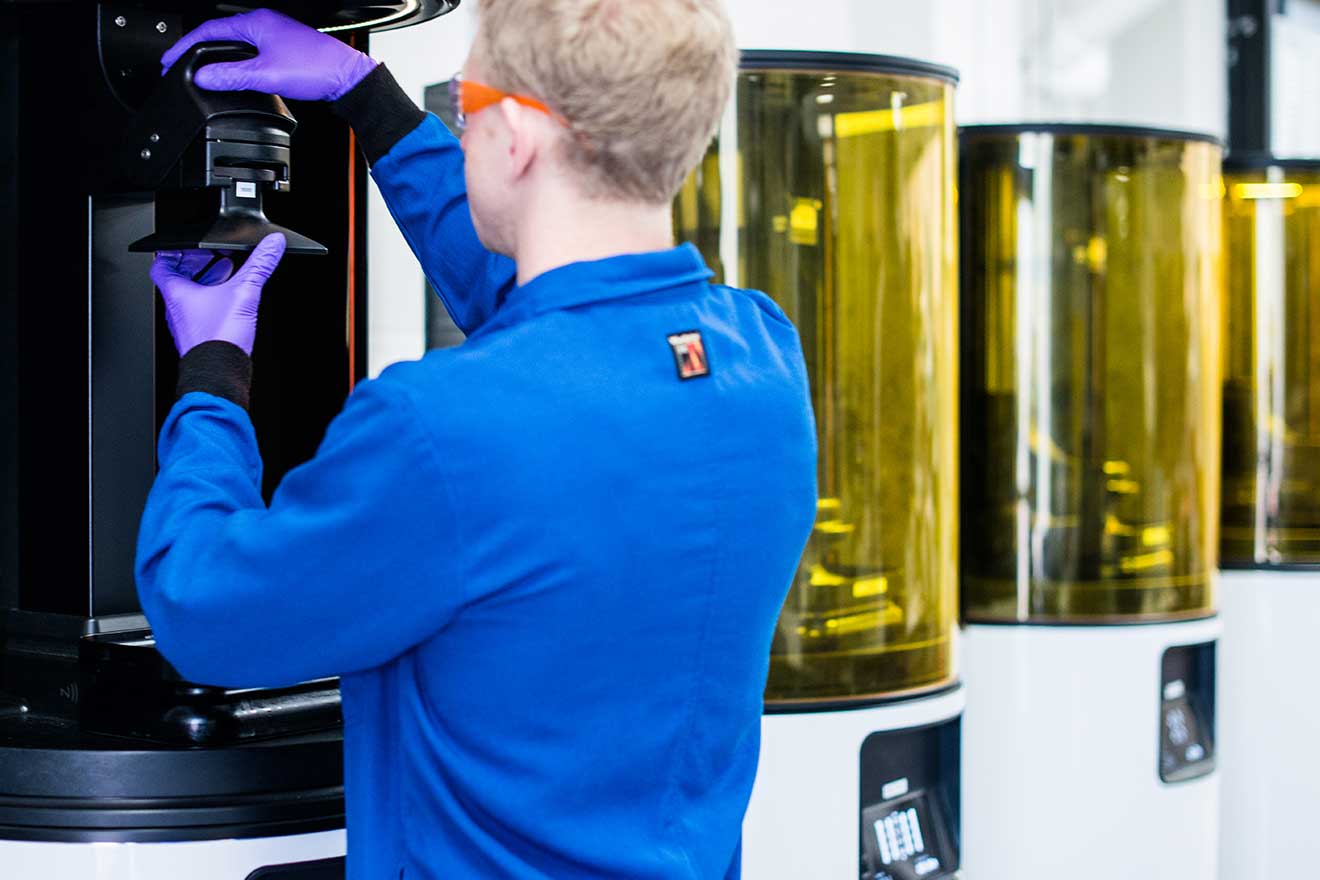
“We’re excited to unveil our M1 machine and ground-breaking materials,” said Dr. Joseph DeSimone, CEO and Co-Founder of Carbon. “This product lays the groundwork for addressing major gaps in additive manufacturing as we work with our customers to continually innovate and push the boundaries of product design and production.”
Along with the M1, the company launches several proprietary resins, that allow for the creation of parts with a range of mechanical properties. According to carbon, the materials perform similarly to injection-moulding alternatives. The resins include:
RPU: Carbon offers a family of three Rigid Polyurethanes. RPUs are Carbon’s stiffest and most versatile polyurethane based resin. They perform well under stress, combining strength, stiffness, and toughness. These properties make RPU particularly useful for consumer electronics, automotive, and industrial components where excellent mechanical properties are needed.
FPU: Flexible Polyurethane is a semi-rigid material with good impact, abrasion and fatigue resistance. This versatile material was designed for applications that require the toughness to withstand repetitive stresses such as hinging mechanisms and friction fits.

EPU: Elastomeric Polyurethane is a high performance polymeric elastomer. It exhibits excellent elastic behavior under cyclic tensile and compressive loads. EPU is useful for demanding applications where high elasticity, impact and tear resistance are needed such as cushioning, gaskets, and seals.
CE: Cyanate Ester-based resin is a high performance material with heat deflection temperatures up to 219°C [426°F]. Marked by excellent strength, stiffness and long-term thermal stability, CE is useful for under-the-hood applications, electronics, and industrial components.
PR: Prototyping Resin prints quickly, has excellent resolution, and performs well enough to withstand moderate functional testing. It is available in six colors — cyan, magenta, yellow, black, white, and gray. These colors can also be mixed to create custom colors.
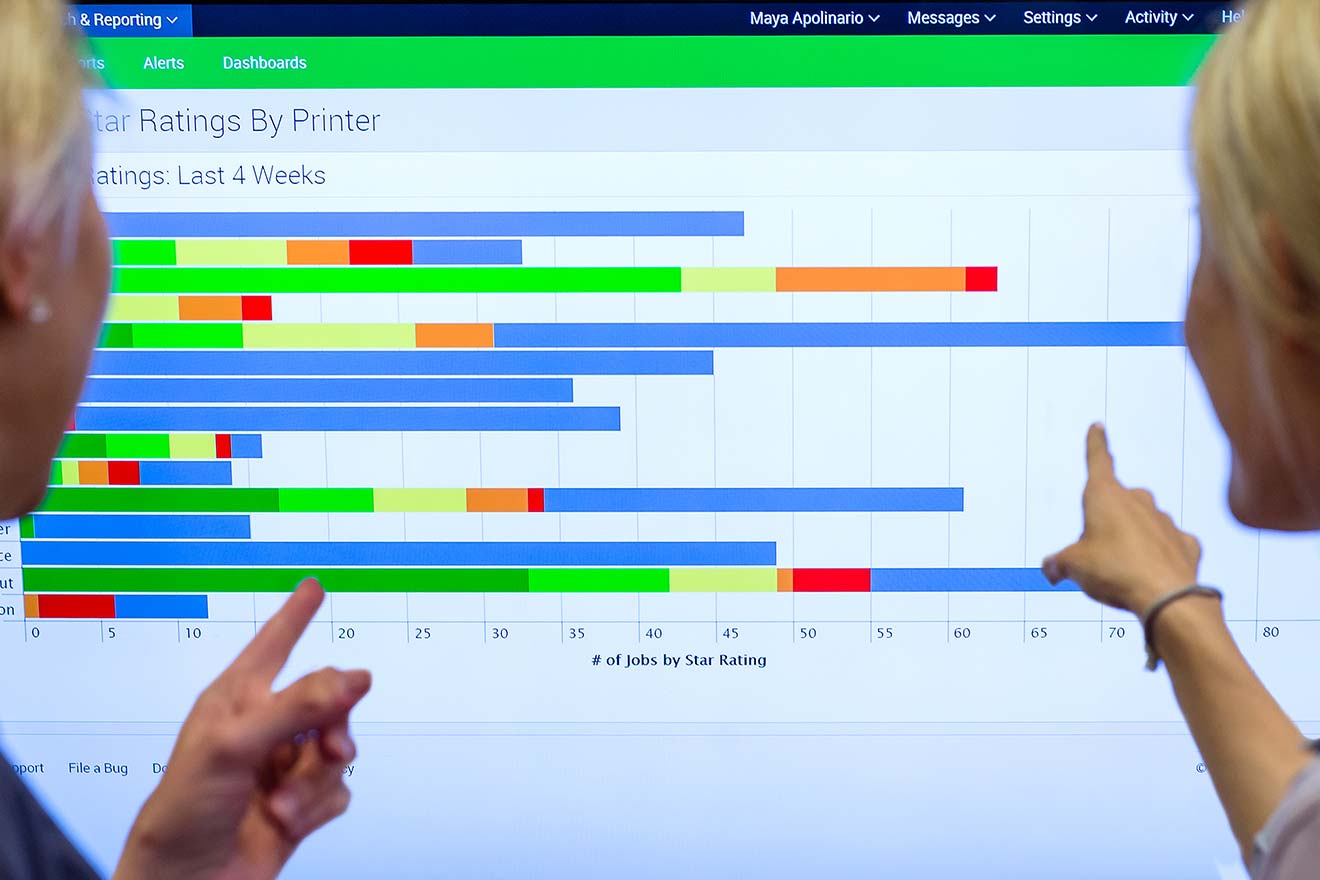
The M1 is available via a unique subscription-pricing model. The annual cost also includes a hands-on service team. Based on the collected operational data, Carbon delivers a predictive service model and seamless machine updates.
Subscribe to our Newsletter
3DPResso is a weekly newsletter that links to the most exciting global stories from the 3D printing and additive manufacturing industry.



